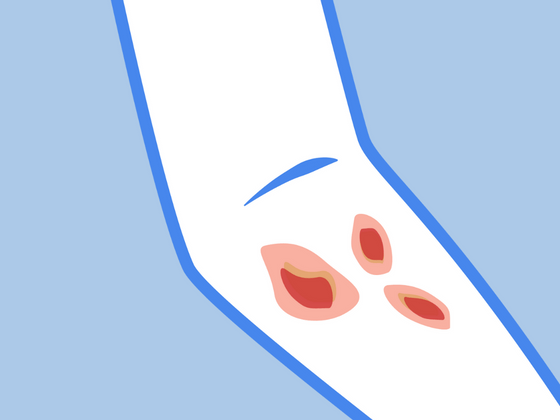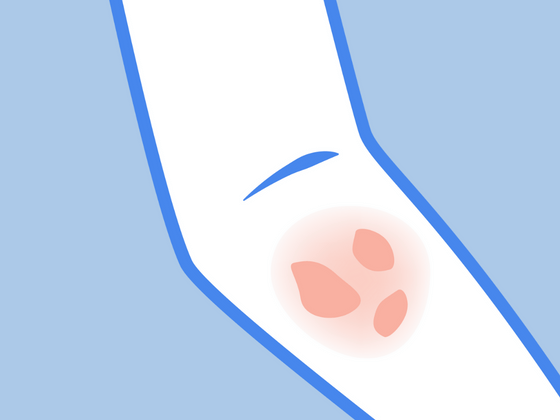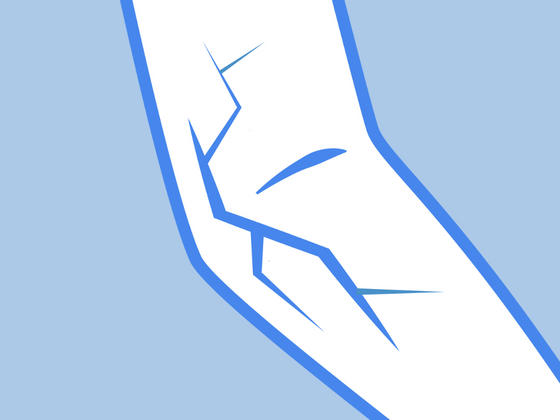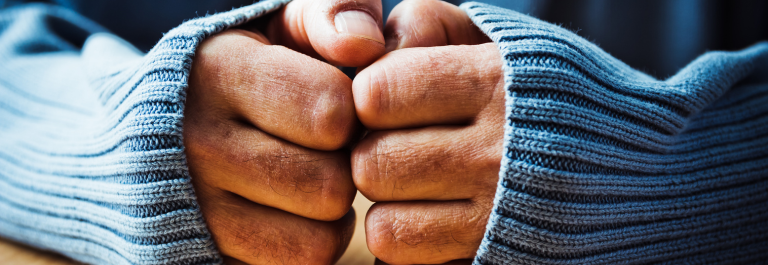Mold is a fungus that commonly grows in damp, moist parts of your home. Perhaps you've noticed mold growth bespeckling the base of your shower, the grooves between your kitchen tiles, or the frames of your windows.
As well as being a bit of an eye-sore for many people, mold spores are also an environmental allergen, triggering an allergic reaction with symptoms ranging from a mild runny nose to full-blown skin rashes and other adverse health effects.
If you or your loved one are sensitive to mold, throughout this post, we'll explore everything thing you need to know about:
-
How mold exposure might trigger skin irritation, including an eczema flare-up
-
The primary mold allergy symptoms to look out for
-
How to treat a mold allergy rash naturally and effectively
Keep reading to learn more about how mold exposure might impact your overall health and more about how to treat and prevent itchy skin.
Why Do Molds Grow?
Molds reproduce using tiny, airborne spores that are invisible to the naked eye, thriving in the presence of moisture.
If your home has poor insulation, poor air circulation, plumbing leaks, or an excess of humidity, mold growth is more likely to occur.
Mold can grow on various surfaces, including wood, plastic, and food.
How Does A Mold Allergy Work?
While there are thousands of different types of mold worldwide, it is possible to develop an allergy to just one or a few mold varieties.
For people with mold allergies, when your body comes into contact with mold spores either directly or within the air, your immune system will trigger the release of mold-specific antibodies, flooding your bloodstream with histamine and other defensive chemicals.
It is these chemicals that are responsible for triggering the symptoms of an allergic reaction.
Are There Different Types of Mold Allergies?
Mold grows both indoors and outdoors. It can be airborne, on specific surfaces, or inside your food.
Some common food allergies related to mold include allergic reactions to cheeses, mushrooms, or fermented foods.
The toxicity of indoor mold can vary, with 'black mold' forming one of the most troublesome varieties (Stachybotrys chartarum). Breathing in its spores has been linked to breathing difficulties, headaches, chronic fatigue, and other serious health effects.
Mold Allergy Symptoms
Mold allergies tend to mimic many of the symptoms caused by respiratory allergies, too, such as:
-
Allergic rhinitis (including cold-like symptoms such as coughing, nasal congestion, and sneezing).
-
Itchy eyes or watery eyes
-
In severe cases, mold allergies may lead to trouble breathing or exasperate other asthma symptoms
Eczema and Mold: What's The Connection?
Skin rashes are another common symptom of mold allergies, triggered by the immune system's inflammatory response.
Due to the phenomenon of the 'atopic march,' people living with asthma and eczema (such as atopic dermatitis or contact dermatitis) are more likely to develop allergic reactions to mold. That's because people with eczema have a weakened skin barrier, which is hypersensitive to environmental irritants and allergens.
In the case of eczema, mold exposure can worsen pre-existing eczema symptoms, triggering an atopic dermatitis flare-up.
Some of the most common symptoms of a mold allergy rash include:
-
Dry, itchy skin
-
Scaly skin patches
-
Skin discoloration
-
Small, raised bumps that may weep or ooze fluid
How Do You Diagnose A Mold Allergy?
Diagnosing mold allergies can often prove difficult, especially because many symptoms resemble other common allergies, such as reactions to pet dander or pollen.
As part of allergy testing, your doctor will likely want to run several blood tests and a skin prick test to help identify which varieties of mold you're allergic to.
If you notice black mold within your home or begin to exhibit any of the above-listed symptoms, we would encourage you to seek medical advice in the future.
Treatment Options for Mold-Induced Skin Irritation
If your eczema has flared due to mold exposure, or you've broken out in another skin rash, don't fret! We have plenty of tips and tricks to help you soothe your aggravated skin.
Use A Natural Soap To Wash Away Mold Spores
Mold exposure can occur directly (through physically touching mold spots) or indirectly through contact with airborne mold spores or spores from outside on your clothing.
Regularly using eczema soap can be a great way to wash away mold spores from your body and nourish dry skin at the same time, helping to avoid further allergic reactions.
This Tallow Bar Soap with Zinc was explicitly made for sensitive skin to calm skin conditions like red, irritated eczema. Zinc pyrithione is used in various natural skin care products to help reduce skin inflammation associated with rashes, allergies, or irritation. It is also anti-bacterial and anti-fungal, helping to fight mold.
Just be sure to air out your bathroom after showering or bathing to avoid mold growth!
Use an Anti-itch Moisturizer
While it might feel very tempting to scratch your dry skin, itching can weaken your skin barrier even further, making you more vulnerable to mold exposure.
Instead, we'd recommend generously applying eczema cream to soothe itchy skin. This Organic Calendula Salve works wonders on dry, cracked, or sensitive skin and eczema. Full of vitamins, antioxidants, essential fatty acids, plant compounds, and natural enzymes, it is safe for babies and effective for adults.
How To Prevent Mold Exposure
It's all well and good treating your eczema flare after mold exposure...but how do you prevent mold in the first place and protect yourself from other skin rashes long-term?
To reduce the signs of visible mold in your home, we'd recommend the following:
-
Investing in a dehumidifier to pull excess moisture out of the air
-
Investigating the legitimacy of your home's plumbing, insulation, and air-circulation systems to ensure they're working at maximum efficiency
-
Physically wipe away visible mold in your home using water, baking soda, and vinegar as a natural deterrent.
Heal And Prevent Mold Rash Today
Follow these tips to help you learn whether mold exposure exasperates your eczema and allergy symptoms, equipping you with the knowledge you need to treat and protect your skin today.








